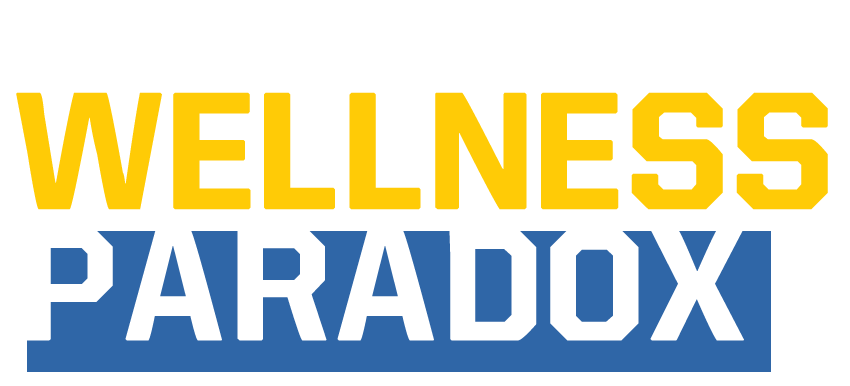Most people know they should exercise more. In fact, most people even have a basic idea of what they should be doing for exercise. The challenge is less knowing what to do, and more doing what we already know. This knowing-doing gap can be closed off by a great Fitness Coach that truly understands their client’s needs goals.
If you struggle with helping your clients stick to your exercise routine, and are looking to build the skills to help them establish consistency in order to achieve their goals, read on to learn how a skilled Fitness Coach can keep their clients on track.
WHAT IS A FITNESS COACH?
Before we explore how a Fitness Coach helps hold you accountable, we first have to establish what a Fitness Coach is. There is a big difference between a Personal Trainer and a Fitness Coach (as discussed in this article: Evolving from Personal Trainer to Fitness Coach). Understanding how a Fitness Coach works is at the heart of the way they hold clients accountable.The most important thing a Fitness Coach does is start with the client (as a human), rather than with the plan or the program. The goal of a talented Fitness Coach is to ensure the plan they co-create with you fits into the client’s life, rather than the client have to fit their plan into their life. Many people have tried (and failed) to fit their life into a new diet or exercise plan, only to have it fall short on the implementation end. It’s simply not realistic, as busy people, to twist our life all around to make a new exercise plan work. Great Fitness Coaches know this, so they start with the most important thing – the human being in front of them.
As laid out in the article referenced above, starting with the client is in stark contrast to the approach taken by most Personal Trainers who apply the expert approach, that is more trainer-centered, than client-centered. In these situations, the Personal Trainer holds all the knowledge and expertise, and they use that expertise to develop the program they feel is best for the client. Although this sounds like a good approach, it falls short very quickly.
Clients aren’t looking for a plan that “sounds good for them.” They’re looking for a plan that is great for them. The difference between good and great has less to do with what’s in the plan and much more to do with the likelihood that the client will actually do it. The perfect exercise program that isn’t adhered to is worthless, full stop.
Adherence, accountability, and ultimately long-term results start with the client, not with the plan. Skilled Fitness Coaches know this, know let’s explore how they do this.
#1: A FITNESS COACH HOLDS CLIENTS ACCOUNTABLE THROUGH THEIR VALUES
The essence of staying accountable is knowing what motivates someone on the deepest level. Indeed, it is much easier to stay accountable to ourselves when what we’re doing is related to what we value most. Great Fitness Coaches know this, and use this to hold clients accountable.As part of the process of getting to understand the client better, a Fitness Coach will find a skillful way to uncover your values. Sometimes this is through exercises directly designed to define the client’s values. Other times it’s through open-ended questions and conversation. One way or another, knowing your client’s values helps you, as a Fitness Coach, develop an emotional “hook” to keep your client on track.
Let’s make sure we’re clear on values before we go any further. The Berkeley Wellbeing Institute provides a great definition of values, as follows:
“A core value can be defined as “an enduring belief upon which a person acts”. Values have a cognitive component in that they involve thoughts about preferable ways to be, live, or act. Values also have an emotional component because we feel positively or negatively about them (they resonate with us or they don’t).”
There are a number of important words in that definition of values that relate to accountability. First, it’s how we prefer to be, live, and act. It’s our preferential state of existing. Second, when we do something that connects with our values, we feel good. This is a potent combination when it comes to accountability, and great Fitness Coaches know how to extract this and use it.
For example, let’s stay one of your client’s values is family. A skilled Fitness Coach will find ways to remind their client how their exercise routine will help them stay fit and healthy to play with their grandkids or go on that backpacking vacation with their daughter.
Another way to look at values, that has become trendy, is knowing “Your WHY.” Values are essentially the WHY behind the WHAT the client is doing. Great Fitness Coaches keep their client’s WHY ever-present, at every step in the process. In doing so, rarely do they have to take an active role in holding their client accountable, the client’s values will do it for them.
#2: FITNESS COACHES HOLD CLIENTS ACCOUNTABLE THROUGH REALISTIC GOAL SETTING
It’s hard to stay accountable to something that’s not realistic for your client’s lifestyle. It doesn’t really matter if you feel like your client should exercise six days a week, if their lifestyle doesn’t allow them to. Clients are quite often inundated with what they should be doing for exercise, with little regard to what they can actually do in their busy lives.Going a step further, most people start their fitness journey with what they want to accomplish (their results), rather than what they can actually do given their lifestyle. Having an aspirational goal isn’t a bad thing at all, but certain goals require more time, effort and energy than others. Starting with too aggressive of a goal, given the amount of time the client has to dedicate to exercise, dooms the client to failure before they start. If an unrealistic goal is set initially, no amount of accountability will help.
Skilled Fitness Coaches work with clients to start with what they realistically can do from an exercise perspective, and then work backwards from there to help them set realistic outcome goals. Starting with what the client’s lifestyle allows for will dictate the outcomes that the client can achieve.
As an example, if a client sets a goal to run a marathon (26.2 miles), but only can dedicate three hours per week to exercise, they’ve failed before they’ve ever begun. In three hours per week, it is very realistic to train for a 5k (3.1 miles), maybe even a 10k (6.2 miles). Pretending somehow client can achieve the marathon goal in 3 hours per week is a recipe for failure that no amount of accountability can fix.
When a skilled Fitness Coach works through the goal setting process, they grease the skids for the client’s success, and minimize the amount of accountability they’ll need. The Coach works with the client to set a goal that is realistic given what their lifestyle allows for. This is, in effect, the best form of accountability as it sets the client up for success before they even begin.
#3: FITNESS COACHES HOLD CLIENTS ACCOUNTABLE TO THE PROCESS
When we referred to goals above, we were mostly talking about outcomes goals, or the thing(s) the client wants to achieve. This could be improved blood pressure, injury rehab, weight loss, and/or running that marathon. While it is important to be aware of what your client wants to accomplish, being overly focused on the outcome, without focusing on the process, can be counterproductive. Great Fitness Coaches know this. They hold clients accountable to the process rather than the outcome, knowing that if clients adhere to the process the outcome will naturally occur.This is because skilled Fitness Coaches know that the brain is wired for instant gratification. Outcome goals work against that wiring because they are in the distant, to very distant, future.
The instant gratification mechanism is one of our most innate survival instincts, it’s deeply wired in our brain, and probably the reason we’ve survived as a species for so long. For more information on instant gratification check out this great article by researchers at Harvard.
What was once good for foraging for honey and running away from tigers is very bad for our long-term goal achievement. Well-trained Fitness Coaches know this. If they constantly reinforce and hold clients accountable to the outcome only, their clients will quickly feel defeated and depleted, because the outcome provides no instant gratification.
On the other hand, focusing on the process, or the steps needed to achieve a goal, works WITH instant gratification mechanisms, rather than against them. In focusing on holding clients accountable to the daily steps of the process, a Fitness Coach can ensure they derive instant gratification for doing the right thing(s) that day to move toward their goals. In doing so, the client will be continually reinforced to stick to the process day in and day out, increasing the likelihood that they’ll achieve your longer-term outcome goal.
#4: FITNESS COACHES INTERVENE WITH ACCOUNTABILITY AT THE RIGHT TIME
What you might have found interesting about the first three ways a Fitness Coach holds a client accountable is that they all occurred prior to you actually starting the plan. Indeed, the right upfront work can ensure the conditions for accountability are created well before the process even begins (in fact, it has to)Even when this is done, all clients still need some accountability along the way when they veer off track. A skillful Fitness Coach not only knows when to have an accountability conversation, but also how to have it (which we’ll explore in #5).
This is where the art and science of Fitness Coaching come together. If a Fitness Coach intervenes too soon, they could prevent valuable learning opportunities from taking place for the client. Worse yet, they could upset the client by intervening on something trivial.
The client probably doesn’t need a phone call if they missed one workout, but missing a week of workouts might be a different story. If the Fitness Coach delays their intervention too long the client might fall off the wagon so hard it would be difficult to get back on track.
The skilled Fitness Coach knows enough about the client, their values, and their goals to know when to intervene to hold them accountable. They also know enough to back off when it’s appropriate. Threading the needle and reaching out at the right time (#4) with the right message (#5) is critical to effective accountability by a Fitness Coach.
#5: FITNESS COACHES HOLD CLIENTS ACCOUNTABLE THROUGH PROBLEM SOLVING
Fitness Coach accountability is not yelling or screaming, far from it. No one likes to be yelled or screamed at. That’s not productive accountability, that’s fearful manipulation, and skilled Fitness Coaches know it won’t result in long-term change.Instead, when great Fitness Coaches hold clients accountable, they do so by asking open-ended questions and being curious, in a non-judgmental way, about the client’s struggles. When they do this, something magic happens – the client begins to critically think about why they’re falling short and what they might need in order to be held more accountable. In many cases, when a Fitness Coach utilizes this accountability method, you’ll find that the client begins holding themselves far more accountable than the Fitness Coach ever could.
That is the ultimate role a Fitness Coach plays in effective and lasting accountability, they create the environment in which the client begins to hold themselves accountable, and there is nothing more powerful than self-accountability.







Comments
Post a Comment